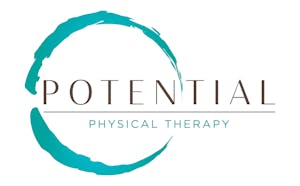
Temporomandibular disorder (TMD), is a term that describes an entire group of disorders involving the temporomandibular joint or joints (TMJ).
The TMJs are the jaw joints. There is one on each side of your head just in front of your ear canals. Like many other joints in the body, they consist of:
- Muscles that control joint movement,
- Ligaments that hold the bones together,
- Cartilage that provides a smooth surface for the bones to move on,
- A disc that helps with proper movement, of the bones,
- Elastic tissue that helps hold the disc in place.
One or more of the above tissues can cause symptoms. In fact, studies suggest that one third of the population at any one time experiences TMJ symptoms such as pain with chewing, yawning, or jaw opening. Women seem to have TMJ problems much more often than men and it is estimated that 3-6% of the population might benefit from treatment.
There are a variety of temporomandibular disorders. The muscles (myogenous), joint(s) (arthrogenous), or a combination of the two may cause pain.
Since physical therapists treat muscle and joint problems, they are ideally suited to address a TMD. Jaw problems can cause jaw pain and problems with chewing. The pain can interfere with proper sleep. It can also cause headache, tinnitus, dizziness, “clogged ears” and neck pain.
When a physical therapist performs the examination, they will be able to classify you as having one or more of the following:
- An Inflammatory Condition
- Limited Jaw Range of Motion
- Excessive Jaw Range of Motion
- Arthrogenous Disc Displacement
- Jaw Muscle Pain
- Neck Pain Causing Related Headaches (Sometimes Mistaken as TMD)
Once the involved structures are identified, the therapist will be able to provide you with the appropriate treatment.
Both postural and muscle imbalances contribute to TMD. In addition, there may be an asymmetrical bite or occlusion.
Your Physical Therapist will treat the posture and muscle imbalances, as well as decrease pain. We will give you appropriate exercises to retrain the jaw muscles as well as self-treatment strategies to manage your problem in daily life. Manual therapy and modalities such as ultrasound or laser treatment will help decrease the pain.
We work with patients independently or as part of a treatment team with those patients undergoing dental treatment for TMJ problems. We can correct postural asymmetry, muscle imbalances and connective tissue tightness to facilitate the orthodontic or prosthetic corrective process.
We can help you can feel better more quickly. Treatment can get you back to eating the foods you love and returning to a healthy, active life.

